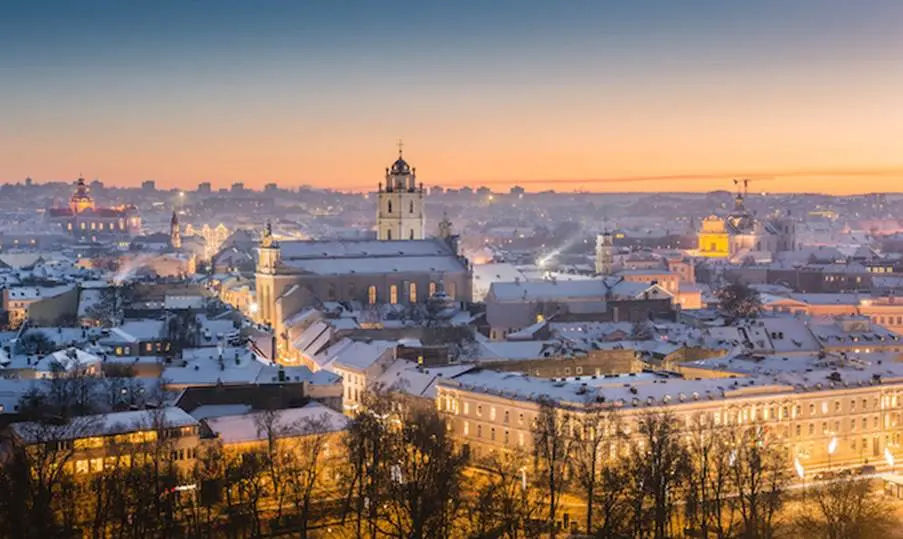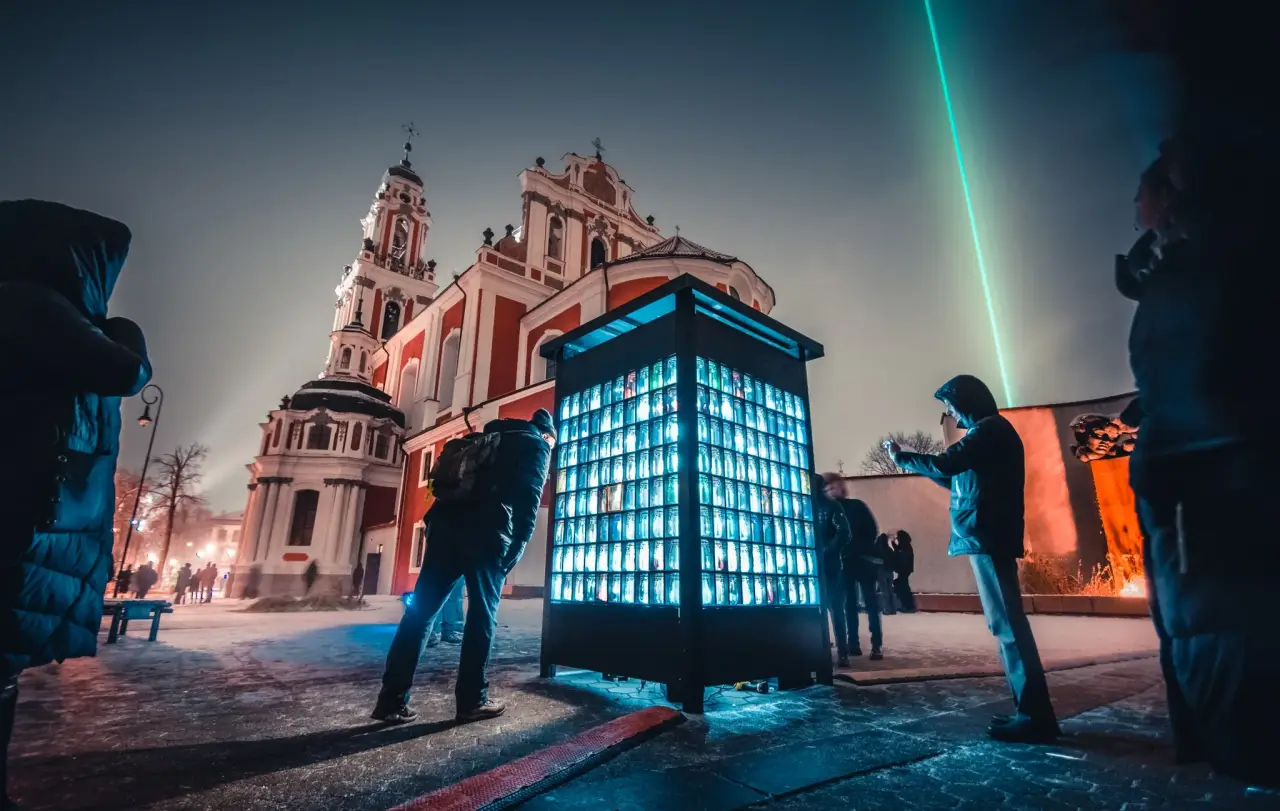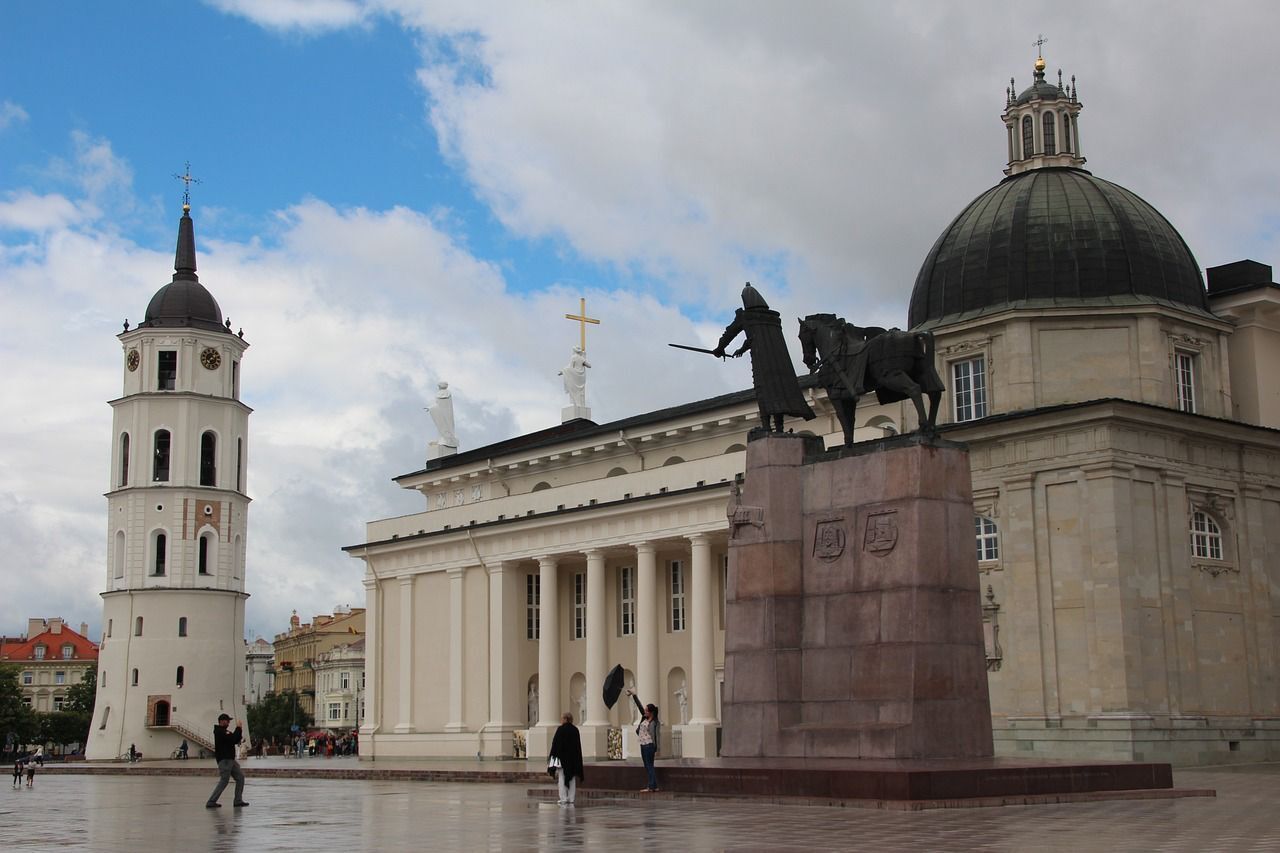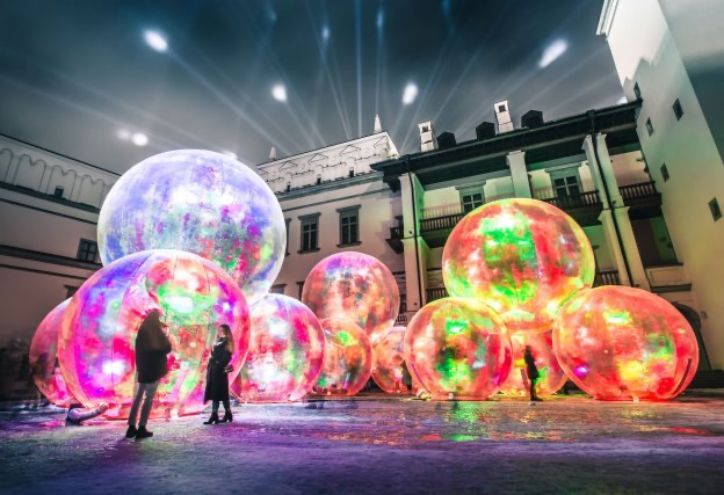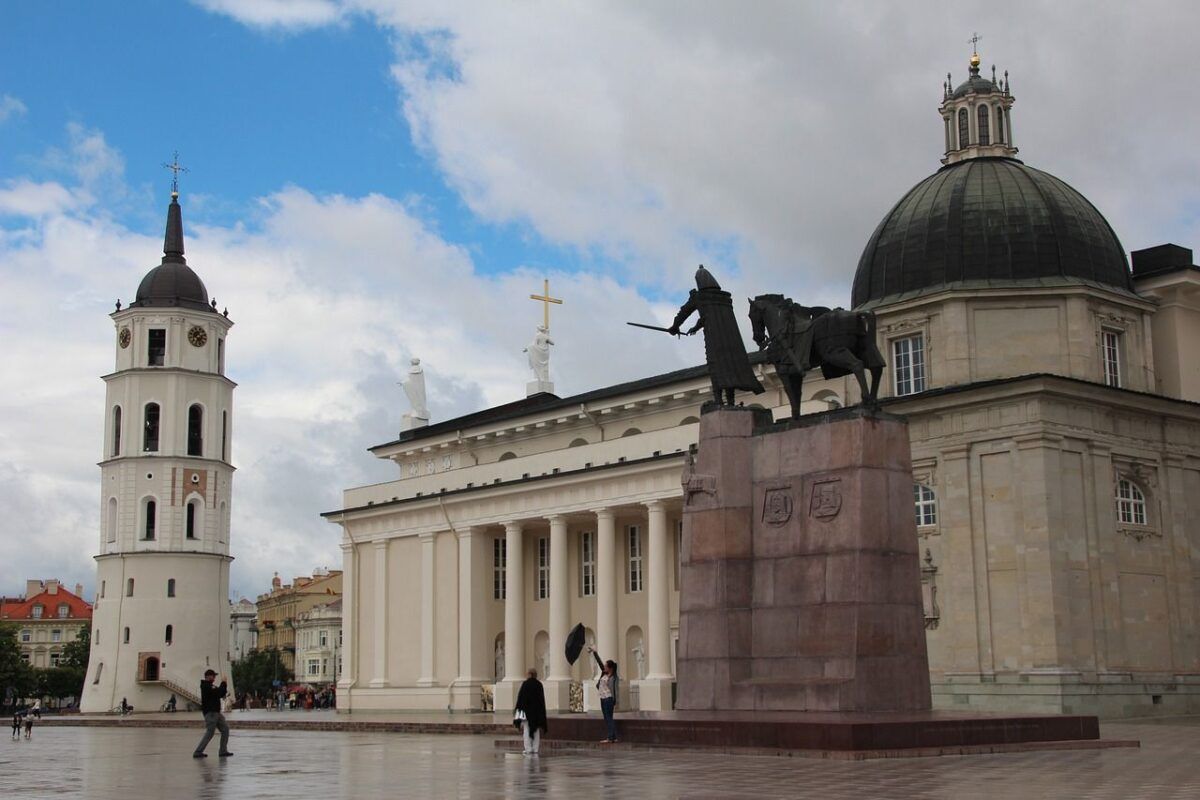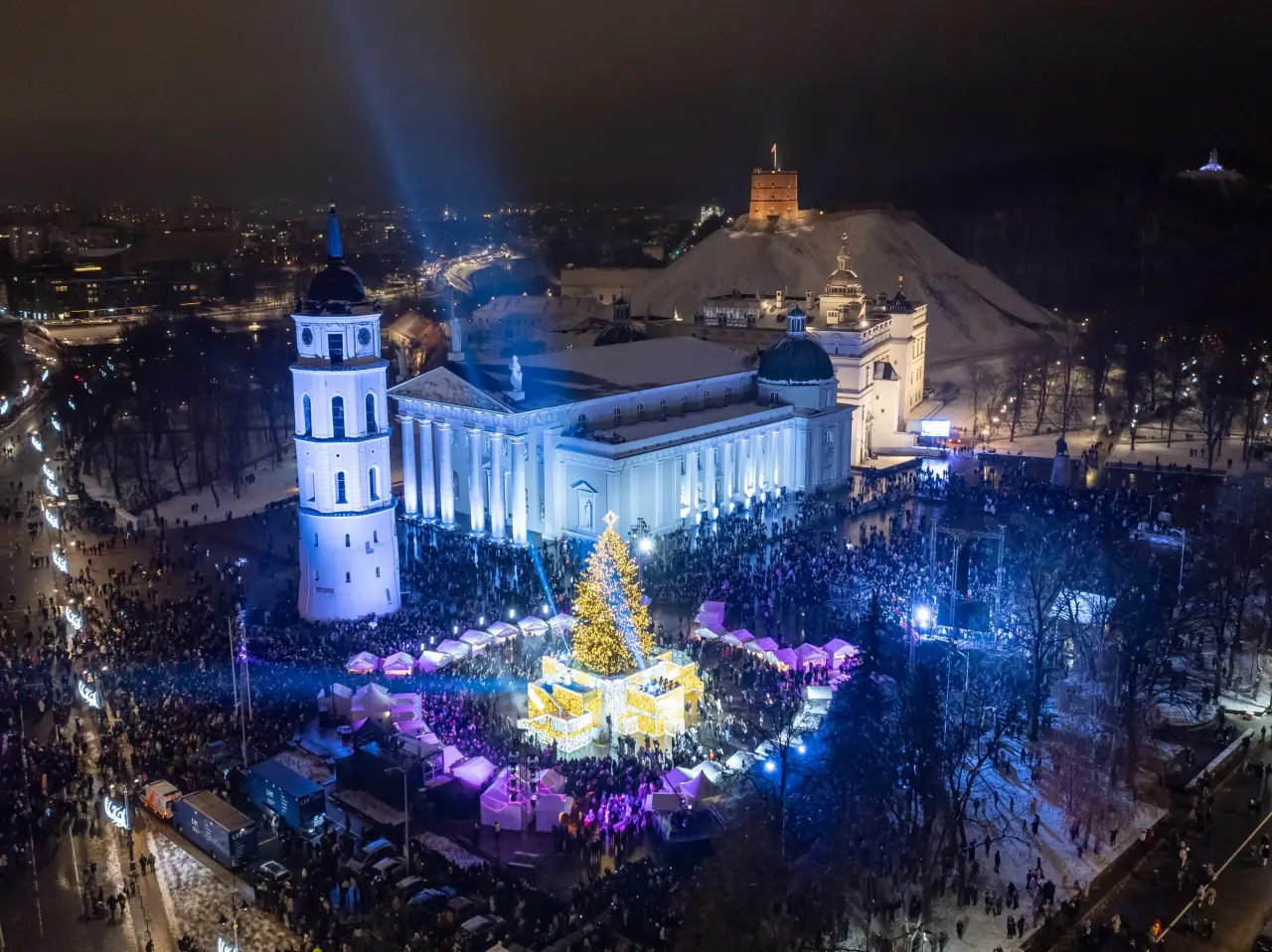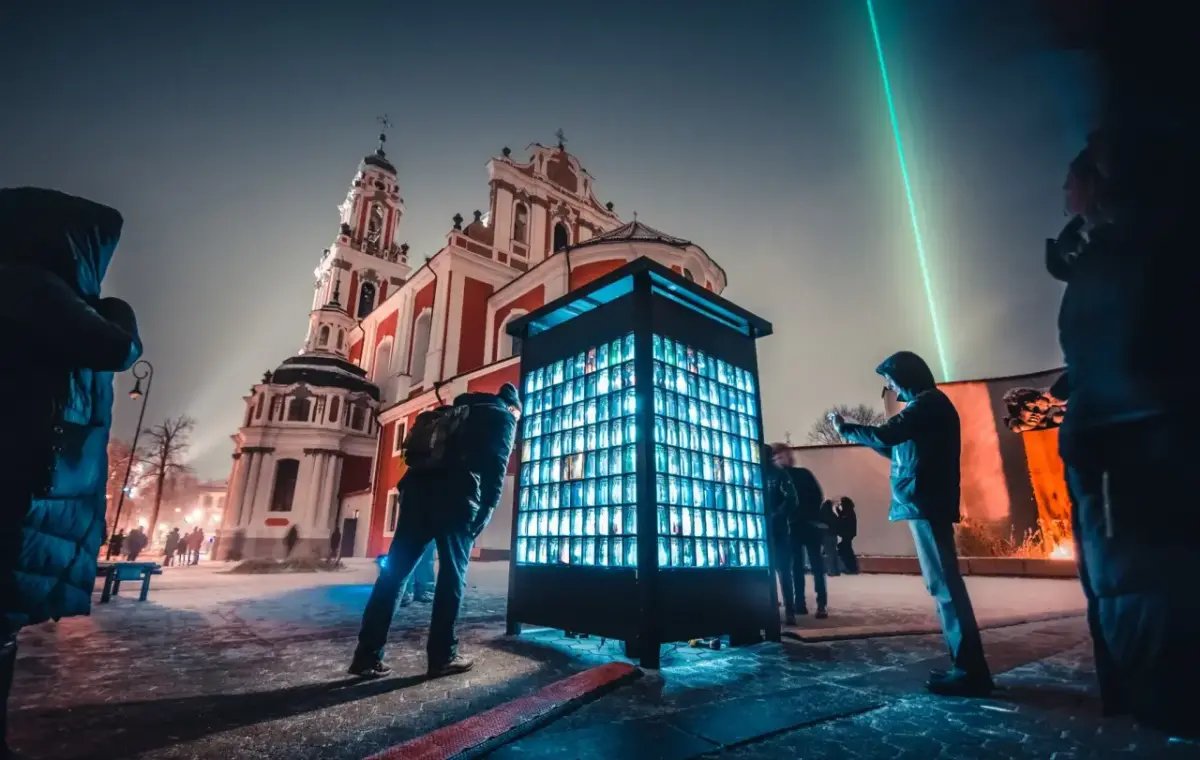This year’s Lithuanian Song Festival invited everyone to celebrate its 100th anniversary with a week full of traditional events.
The jubilee song festival, which occurs once every four years, opened on June 29 in Kaunas Song Valley and concluded with the main Song Day at Vingis Park in Vilnius on July 6.
The celebration brought together 37,000 performers, 1,500 ensembles, and 100 conductors. The 40-hour program included 14 concerts and events prepared by choirs, dance groups, and orchestras from Lithuania and abroad. The main highlight of the festival was the final Song Day, featuring 12,000 performers on the outdoor stage at Vingis Park in Vilnius.
The Lithuanian Song Festival united all of Lithuania: its regions, the different nations residing in Lithuania, and Lithuanians living abroad. The Day of World Lithuanians and Lithuanian National Communities at Vilnius Town Hall Square on June 30 highlighted global Lithuanian achievements and honored Lithuania globally.
Approximately 2,000 Lithuanian expatriates returned home to perform at the festival. There were 24 groups from the USA, 7 from Canada, and 14 from neighboring Poland.
“The Lithuanian Song Festival holds a truly special place in the hearts of Lithuanians – it helps us reconnect with each other and with our roots and gives us strength for whatever challenges may lie ahead. During the festival week, events like Dance Day featuring 9,000 dancers or Song Day featuring 12,000 singers showed how strong and united we are,” said Saulius Liausa, Director of the Lithuanian National Cultural Center, which organized the festival.
Dating from 1924 and enduring through Soviet occupation, the Lithuanian Song Festival proves the nation’s resilience and cultural identity. It gained prominence during the Singing Revolution of 1987-91, when Baltic nations defied Soviet rule through music, and was recognized by UNESCO as an intangible cultural heritage in 2003.
This year’s festival explored the theme of life – plants, animals, people, history, and culture. Therefore, sustainability was one of its key focuses, promoting ecological awareness and responsible practices throughout its events.
One of the most significant decisions of this year’s festival was the complete elimination of single-use bottles in participants’ meals. “This was a huge step, as around 250,000 portions of food were served to the participants during the rehearsals and events throughout the week,” said Liausa.
Additionally, the vehicles of the organizers and partners of the festival were fueled by renewable raw materials. The organizers also encouraged visitors to contribute to the environment by using Vilnius public transport for travel.
Photo by Ahoy





